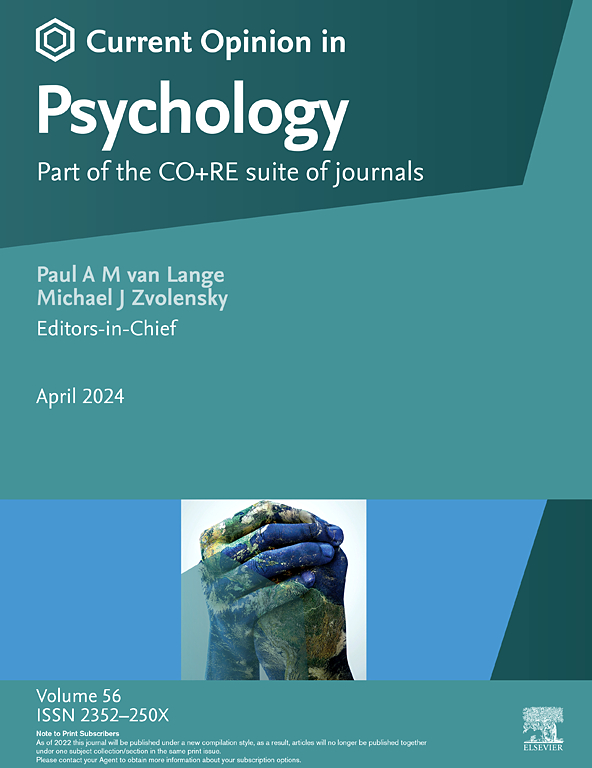Why do people oppose new rules? Policy change, norm change, and public outrage
IF 6.3
2区 心理学
Q1 PSYCHOLOGY, MULTIDISCIPLINARY
引用次数: 0
Abstract
Social norms are guiding principles of society, affecting collective and individual conduct by defining the line between acceptable and deviant behavior. Top-down regulations often aim to redefine what is considered appropriate in groups by imposing new rules that either restrict or mandate certain behaviors. These regulations may transform into socially shared and peer-enforced norms. However, resistance from individuals and groups can impede such changes, leading to opposition and social conflicts. By distinguishing between individual-level (i.e., preferences, reactance, and habits) and group-level factors (e.g., second-order beliefs), we review psychological processes to identify who is prone to resist top-down rule changes and why. Thereby, we develop a heuristic model summarizing when new rules can evolve into social norms, facilitating genuine normative change.
求助全文
约1分钟内获得全文
求助全文
来源期刊

Current Opinion in Psychology
PSYCHOLOGY, MULTIDISCIPLINARY-
CiteScore
12.10
自引率
3.40%
发文量
293
审稿时长
53 days
期刊介绍:
Current Opinion in Psychology is part of the Current Opinion and Research (CO+RE) suite of journals and is a companion to the primary research, open access journal, Current Research in Ecological and Social Psychology. CO+RE journals leverage the Current Opinion legacy of editorial excellence, high-impact, and global reach to ensure they are a widely-read resource that is integral to scientists' workflows.
Current Opinion in Psychology is divided into themed sections, some of which may be reviewed on an annual basis if appropriate. The amount of space devoted to each section is related to its importance. The topics covered will include:
* Biological psychology
* Clinical psychology
* Cognitive psychology
* Community psychology
* Comparative psychology
* Developmental psychology
* Educational psychology
* Environmental psychology
* Evolutionary psychology
* Health psychology
* Neuropsychology
* Personality psychology
* Social psychology
 求助内容:
求助内容: 应助结果提醒方式:
应助结果提醒方式:


